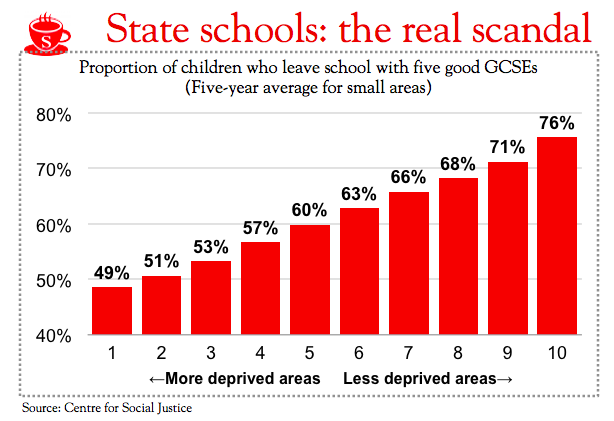On Broadcasting House, one of my favourite Radio 4 programmes, was this morning discussing a report (pdf) from the Social Mobility and Child Poverty commission. It finds, amongst other things, that ‘education at a private or a Grammar school is also associated with an increased chance of labour market success’ amongst dim kids. Who’d have thunk it?
During the subsequent R4 discussion, the Labour peer Joan Bakewell referred to a ‘two-tier education system’. It’s a familiar phrase and a familiar idea: that British kids are somehow cast in a binary divide: the privately-educated and the state-educated. You hear this analysis all the time. Only yesterday, my Spectator colleague Matthew Parris referred to the ‘the barriers of class privilege that our public-school system has built for its beneficiaries.’
Now, while it’s true that British private schools are the best in the world and that their pupils are lucky to be there it is emphatically untrue that this is the only way in which the better-off confer advantage to their children.

Get Britain's best politics newsletters
Register to get The Spectator's insight and opinion straight to your inbox. You can then read two free articles each week.
Already a subscriber? Log in









Comments
Join the debate for just $5 for 3 months
Be part of the conversation with other Spectator readers by getting your first three months for $5.
UNLOCK ACCESS Just $5 for 3 monthsAlready a subscriber? Log in